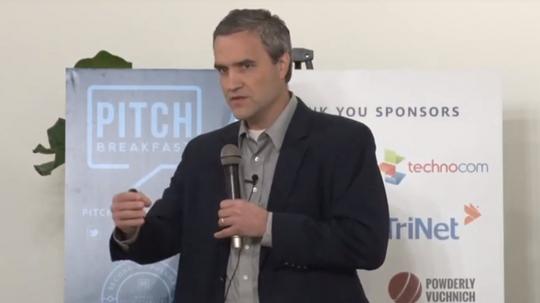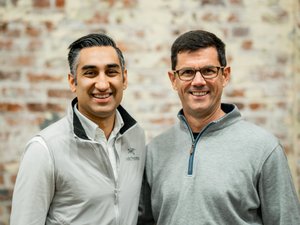
One of the most important questions a startup must ask before launching a new product or service is, quite simply, do people want to buy it.
You start by asking yourselves, your friends and your family. And if you’re the team behind Find.com — a Charlotte-based startup out to personalize the online search experience — you ask thousands more. You stop them in shopping malls, and you flag them down in front of Packard Place for quick product demos and user surveys.
“We’ve done a lot of market research to make sure that our idea’s valid,” said Kim Button, head of marketing for Find.com.
And the reaction they get now is very different than when they first started asking the tough questions.
“Now we’re at the point where it’s almost 100 percent positive,” said Richard Morrell, CEO of Find.com. “You will literally see their whole countenance change as you’re talking to them.”
The Find.com team is obsessed with market research because they’ve been through multiple pivots, and they know it’s not only about how much they believe in their product, but about whether there’s demand for what they want to build.
And as they go out in search of funding to finish building out the technology and marketing the product — $500,000 is their goal — they’re now confident the answer is yes.
The concept behind Find.com is to give control of the online search experience back to the user. The company has designed a web and mobile app that allows you to select your favorite sites and limit your search to those online outlets.
Say you want to buy a black dress. You know what brands you love, and Find.com allows you to search only those sites, without having to go to each individual company’s website.
“We’re helping people get the thing they most want, in the easiest, most efficient way,” Button explained.
You do that by creating a “Find engine,” and you can make one for all kinds of categories, such as news or social media or research. That allows you to limit your searches to the sites you know and trust. Find.com doesn’t collect any personal information, and results aren’t driven by ads.
In an era of fake news, biased results and data security breaches, that’s a compelling prospect, Morrell explained.
The application also allows you to save your search results and share them. That social aspect is key, Button said.
“People really want to be able to share the things that they find online,” Button explained. “Grandma wants to share a cute picture of an outfit before she pulls the trigger on buying it.”
Button describes Find.com as taking search in the same direction brick-and-mortar retail has been heading for the past few years. Malls are dying, not because people aren’t shopping but because they don’t want to navigate dozens of stores when they only care about a few. The retail destinations that are thriving are done in the style of Stonecrest and Blakeney, which bring together a handful of stores in a way that allows you to visit just the ones you want. You don’t have to be overwhelmed.
That’s why Morrell sees opportunity in a space long dominated by Google, which he doesn’t actually see as competition.
Google was great when people needed help getting around the Internet, Morrell said, but that’s not the case anymore.
“People aren’t really looking for [something to] show me whatever’s out there on the Internet,” Morrell said. “I compare this more to creating a neighborhood of your own favorite sites.”
That curated virtual neighborhood would allow Find.com to serve up targeted ads and sponsored listings. That’s core to the Find.com revenue model. The team has discussed more creative options, too, such as collecting a fee every time someone buys something they searched for on Find.com. Or companies could pay to have their sites featured, sponsored or “suggested” as people create their Find engines.
Morrell said he’s eager to talk to investors about some of those more creative revenue options, in addition to the positive user feedback. And if those investors like what they hear, that money would go toward building out the technology, implementing the marketing plan Button has developed and paying some of their core people.
“Everybody that’s doing this is doing it for the dream, not only the financial upside but also just believing,” Morrell said.








